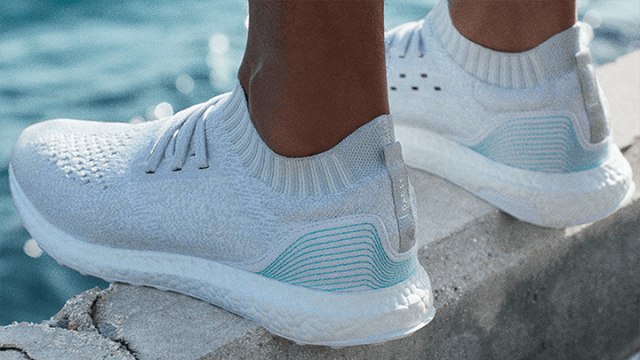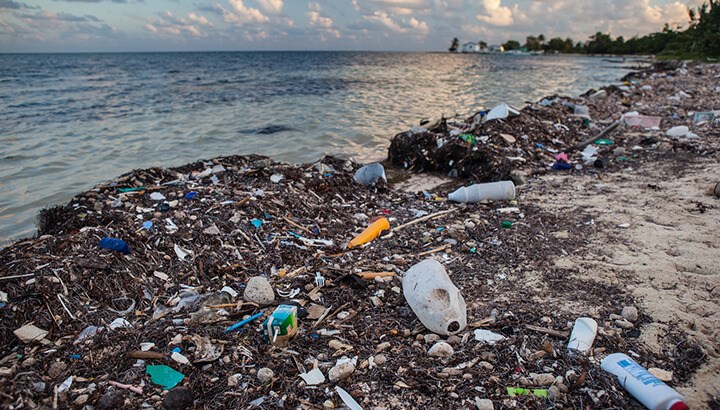
In our modern world, it seems like nearly everything is made from plastic. Look around your home and your car — you’d be hard pressed not to find plastic in every direction.
Despite our rampant reliance on plastic, we know it is a huge environmental problem. Landfill waste is one issue; millions of tons are plastic are thrown away each year. Another is our oceans. Recent reports have estimated that by the year 2050, our oceans will contain more plastic than fish. Yikes.
Running shoes made of plastic
Environmental groups around the world are working hard trying to find ways to curb our waste and clean up the waste that already exists. One of these initiatives, which is now a reality, is a running shoe made from ocean plastic. In partnership with the Parley for the Oceans organization, Adidas has announced that the UltraBOOST Uncaged Parley is hitting the market.
This upper part of this innovative shoe is composed of 95 percent plastic taken out of the ocean. This plastic was collected near the Maldives by Parley clean-up and coast interception operations. The rest of the upper part of the shoe is made from recycled polyester. A significant portion of the lower part of the shoe is made from recycled materials as well. The design of these running shoes is based on ocean waves, to remind wearers of the importance of our oceans.
According to Adidas, each pair of shoes makes use of the equivalent of 11 recycled plastic bottles. Not bad at all, considering the huge size of Adidas’ customer base. While only 7,000 pairs of these shoes are currently being produced, Adidas has announced that in 2017, it plans to make one million pairs of shoes utilizing Parley Ocean Plastic. The company has also outlined an “ultimate ambition” to no longer use raw plastic at all.
Why take action?

On the reason behind this shoe, Eric Liedtke, an Adidas board member responsible for Global Brands, stated:
“The industry can’t afford to wait for directions any longer. Together with the network of Parley for the Oceans, we have started taking action and creating new sustainable materials and innovations for athletes. The 3D-printed ocean plastic shoe midsole stands for how we can set new industry standards if we start questioning the reason of what we create. We want to bring everyone from the industry to the table and create sustainable solutions for big global problems.”
Cyrill Gutsch, Parley for the Ocean’s founder, added:
“Nobody can save the oceans alone. Each of us can play a role in the solution. It’s in the hands of the creative industries to reinvent faulty materials, products, and business models. The consumer can boost the demand for change. But it’s up to eco-innovation leaders, like Adidas, to make change a reality. With this shoe, we demonstrate what’s possible. It’s even more than a shoe. It’s a flag, an invitation to join our movement.”
Partnership with Parley for the Ocean
Parley for the Ocean’s mission statement is inspirational. On their website, the group writes:
“To succeed, we need to find ways to synchronize the economic system of humankind with the ecosystem of nature. And make environmental protection fiscally lucrative for pacesetting major companies.” If these goals are accomplished on a large scale, we could truly begin to undo some of the damage we have done to our planet.
Adidas has also announced that jerseys made with Parley Ocean Plastic are on the way, and plastic bags at Adidas retail stores are being phased out. Kudos!
Also, Adidas isn’t the only company that has started using recycled ocean materials. The surf company, Volcom, has recently announced a new swimwear line for women, made from 78 percent recycled nylon. These recycled materials include fishing nets. This is great news, as these nets, when left abandoned in oceans, can cause the deaths of many ocean creatures.
For the sake of our oceans, now is certainly the time to use our dollars towards products that have these types of sustainability efforts in mind. If the trend catches on, we could do some real good before it’s too late.
— Tanya Mead

